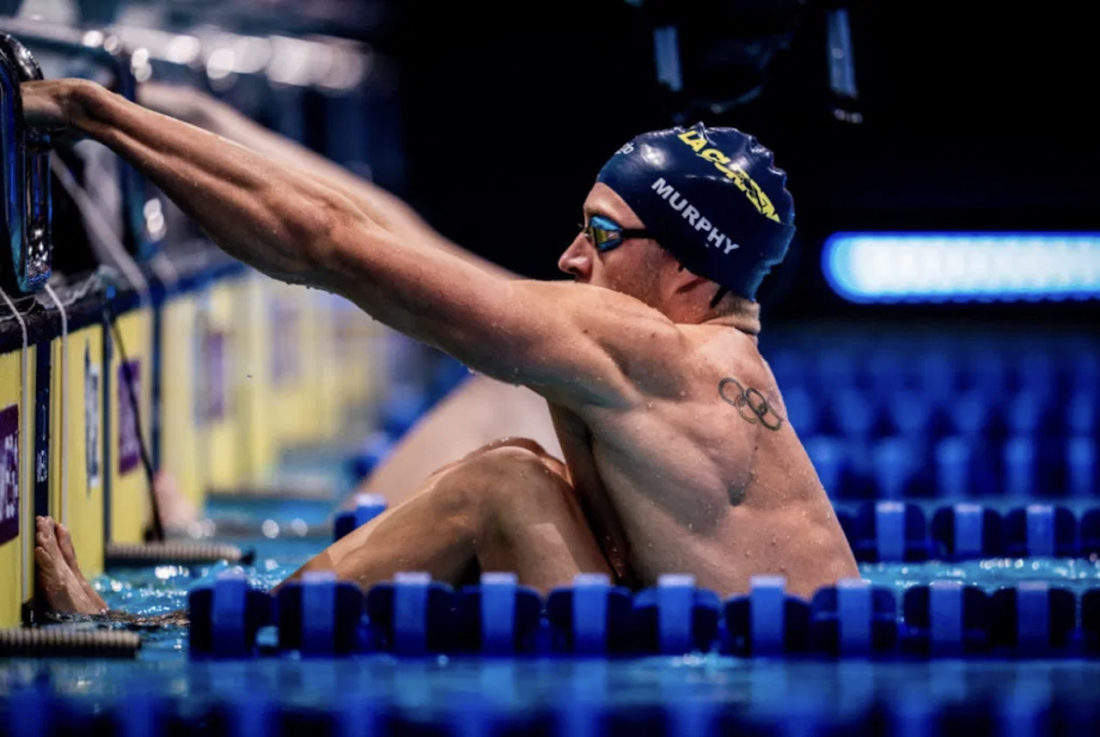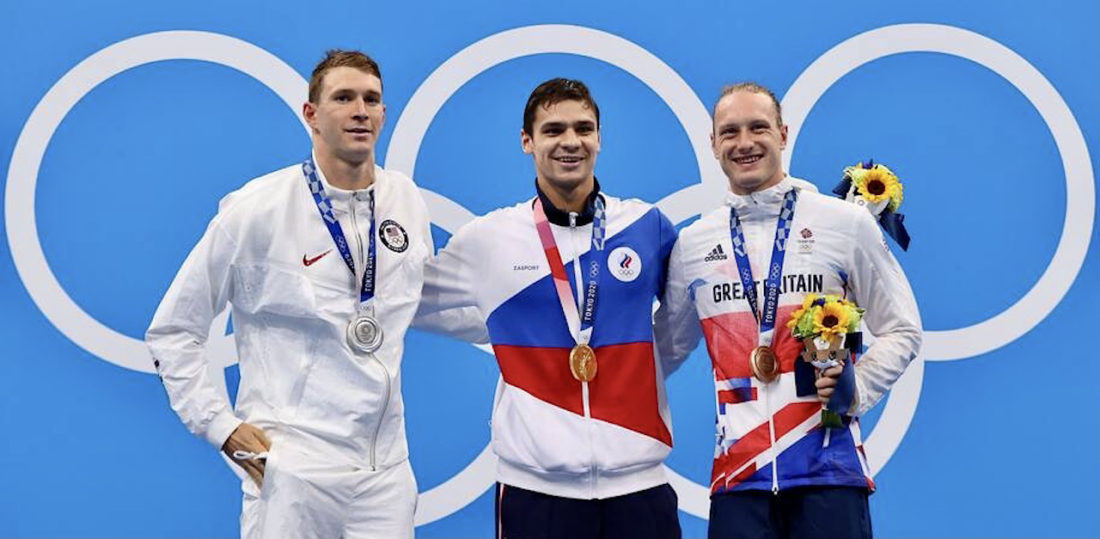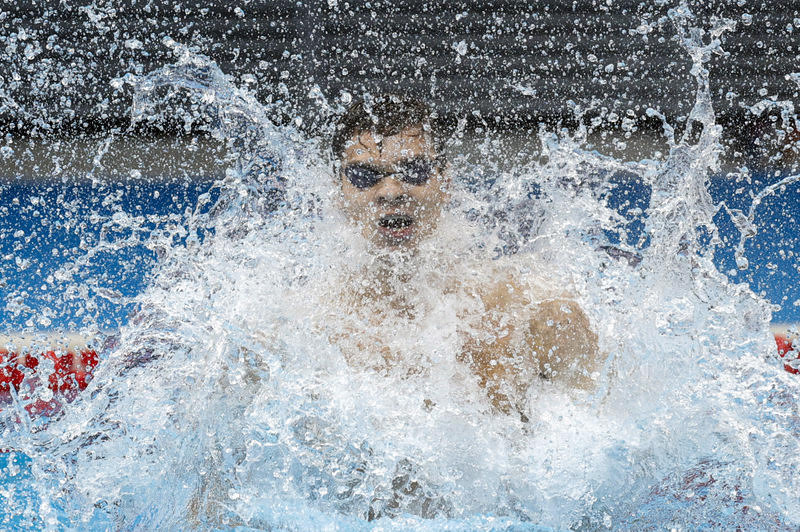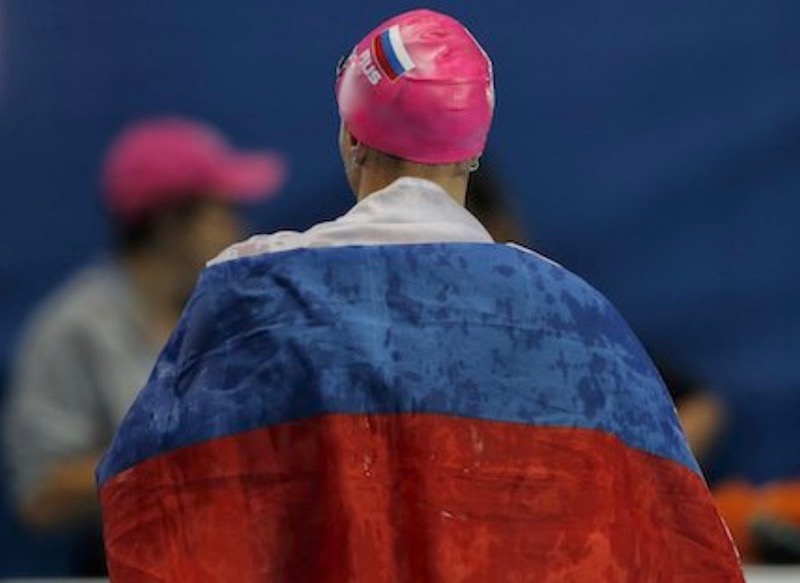Cold War Returns To The Olympic Pool As Murphy Unleashes Team Tchaikovsky Elephant In Room After Rylov Win

Cold war at the Covid Games, with Team Tchaikovsky in the red corner Vs Ryan Murphy in the blue. The trouble started when the American Rio 2016 double Olympic backstroke champion emerged from the final of the 200m here in Tokyo with a silver lining a swing of an arm behind Team Tchaikovsky charge Evgeny Rylov and a swing of an arm ahead of Britain’s Luke Greenbank.
The heat and humidity outside the Aquatic Centre seeped under the doors, settled on the deck and misted its way along to the corridors of power where doping has been an elephant in the room for decades.
Murphy let the hound off the leash in the mixed zone straight after battle with Rylov, who is competing under the flag of the Russian Olympic Committee (ROC) – AKA Team Tchaikovsky – because of the small matter of urine samples being switched through plug-holes from an official IOC laboratory at a Winter Games into a secret room in the control of state security forces – and other stuff like that.
When serious events such as those surrounding the Socchi 2014 Winter Olympics, connected as they are to whistle-blower revelations about systematic programs and rogue doctors connected to many sports (swimming included: Russia had the worst record on doping in the pool in the build up to the Kazan 2015 World Championships, for example), whole-nation penalties should, indeed, cast a shadow on whole nations.
Murphy had that in mind when he spoke directly after the race in which Rylov set an Olympic record of 1:53.27. The American told reporters in the mixed zone:

“It is a huge mental drain on me to go throughout the year, [knowing] that I’m swimming in a race that’s probably not clean, and that is what it is. The people that know a lot more about the situation made the decision they did [to allow Russian athletes to compete as the Russian Olympic Committee]. It frustrates me, but I have to swim the field that’s next to me. I don’t have the bandwidth to train for the Olympics at a very high level and try to lobby the people who are making the decisions that they’re making the wrong decisions.”
(l-r) Ryan Murphy, silver; Evgeny Rylov, gold, and Luke Greenbank, bronze – the Tokyo 2020 Olympic 200m backstroke podium, by PBK
Shoulder-to-shoulder with Rylov behind perspex barriers at a press conference, Murphy was a touch more circumspect, saying “my intention is not to make any accusations here.” Even so, he added:

“At the end of the day, I do believe there is doping in swimming. And that is what it is. I met the new [global governing body] FINA executive director, Mr [Brent] Nowici and he and I were talking about FINA and about things they were doing to push the sport forward. I think FINA needs to be more transparent both on the financial side and the drug taking side.
Ryan Murphy – photo – (l-re) Ryan Murphy, silver; Evgeny Rylov, gold, and Luke Greenbank, bronze – the Tokyo 2020 Olympic 200m backstroke podium, by PBK
“I don’t have an objection [to Team Tchaikovsky racing in Tokyo ],” Said Murphy. “I said there’s people that know a lot more about this situation than I do. I’m training to be the absolutely best athlete I can be. So I don’t have time to get involved in this situation. But there is a situation and that’s a problem. I’m sorry that there is a situation but I don’t know enough about it to give a 100% certain answer.”
Perhaps this was the wrong moment to raise such issues, some suggested. The term sour grapes was mentioned in the media corridor chat. Murphy had just missed another target for a USA squad under pressure as it goes into the last weekend of action in Tokyo level with Australia on gold count, with six apiece.
On the other hand, if not coming out of an Olympic final behind a member of Team Tchaikovsky with the world’s camera’s whirring and the biggest U.S. print-media outlets right in front of you, the Washington Post popping the question, then when?
Team Tchaikovsky ace Rylov had an answer to the answer:
Murphy had not made an allegation specifically against him, said the 24-year-old Russian Olympic, World and European champion, through a translator:

“I have always been for clean competition. I am always tested. I will fill out all of the forms. From the bottom of my heart, I am for clean sport. I am devoting my whole life to this sport. I don’t even know how to react to that. Ryan didn’t accuse me of anything so I’d rather not react to what he said. Ryan has all the right to think the way he does and to say whatever he says. This is today and here that we live. We don’t live in the past, we don’t live in the future. Time will tell. Honestly, he did not accuse me of anything, that is why I don’t have anything against him because he didn’t put up anything against me directly.”
Evgeny Rylov – Photo by Patrick B. Kraemer
Rylov had good reason to think that Murphy, the Rio 2016 double backstroke champion, was not targeting him personally. Rylov belongs to and is supported by the Energy Standard International Team built by Konstantin Grigorishin, the billionaire funder and founder of the International Swimming League.
Murphy races for the LA Current pro-team on the League’s annual circuit. One of his mates at the University of California, Berkeley, is Grigorishin’s son Ivan, while Grigorishin launched the ISL with a rule that goes beyond the provisions of the World Anti-Doping Code: where dopers who have served a suspension are allowed rio make a comeback, with many continuing to training during their time in the sin bin, the swim league bans for life anyone falling foul of anti-doping.
A couple of hours into searching for the elephant that had bolted the mixed zone, Team Tchaikovsky bosses at the ROC issued this statement on social media using the images of Murphy and Greenbank when suggesting that they were simply mouthpieces for English-language propaganda, the pot calling the kettle black the new elephant in the room:

How unnerving our victories are of individual colleagues in the shop. Yes, we are here at the Olympics. Absolutely right. Whether someone likes it or not. But you have to be able to lose. But not everyone is given this. The old hurdy-gurdy again started the song about Russian doping. Someone is spinning A spool. English-language propaganda, oozing verbal sweat in the Tokyo heat. Through the mouths of athletes offended by defeats. We will not console you. Forgive those who are weaker. God is their judge. And for us – an assistant.
ROC, some members of which are in town even when Russia is not supposed to be
It must help to have Tchaikovsky up there bending God’s ear:
Just as Lilly King had been asked back in Rio 2016 about Justin Gatlin*, the sprinter who won two of his five Olympic medals after serving a doping ban, so was Murphy. King did a little better in terms of spelling out that she didn’t care who it was out where they came from, if they cheated she didn’t want them there, including not wanting Gatlin as an Olympic teammate. Murphy noted:

“In the case of Justin Gatlin, the US is always completely transparent in terms of how often people are drug tested. If they tested positive, what they tested positive for. There are checks in place for if people test positive. That’s an individual scenario.”
Doping, the bane of clean sport, the fuel of cheats and rogues – Image courtesy SwimSketch
Greenbank’s take: “It’s obviously a very difficult situation, not knowing whether your race is clean, but it’s something which is part of the sport and more needs to be done to tackle that. I can’t speak on Ryan’s behalf, but there has been a lot of media around the Russian federation coming into these Olympics. It’s frustrating seeing that, as an athlete, having known that there is a state-sponsored doping programme going on and feeling like maybe more could be done to tackle that. But it’s not for me to make those decisions.”